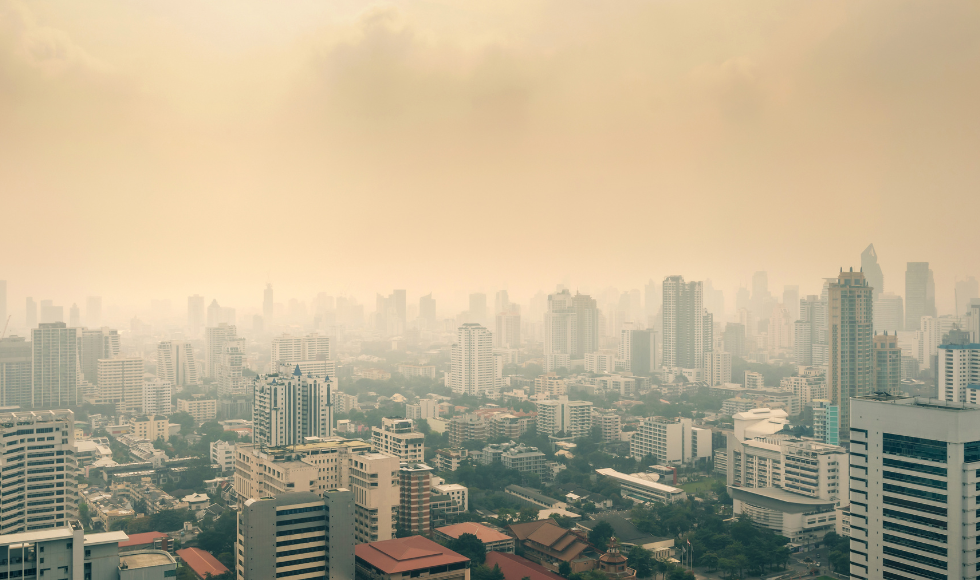Humanities and Engineering researchers team up to address climate change impact on Black communities

Ingrid Waldron and Zobia Jawed are creating workshops that will help racialized community members recognize the ways in which climate change affects their lives, and empower them to act. (Shutterstock image)
BY Naz Kittani and Sara Laux
December 15, 2023
The weight of the world is not always distributed evenly, especially when it comes to the climate crisis.
For decades, underrepresented communities across the world have been at the forefront of feeling the effects of climate change in their everyday lives.
Ingrid Waldron, the HOPE Chair in Peace and Health in the Faculty of Humanities, and McMaster Engineering researcher Zobia Jawed are working together on a series of educational workshops for underrepresented communities in the Greater Toronto and Hamilton Area to bridge the gap between these communities and climate policymakers.
“In the complex intersection of climate challenges and infrastructure shortcomings, underrepresented communities fervently call for immediate action,” says Jawed, who has taken on a Senior Research Fellowship in the Global Peace and Social Justice program.
“Going beyond municipalities merely declaring a climate emergency, the pivotal task is to meticulously craft actionable items for tangible and enduring impact.”
Workshops that empower community members
With the help of the Coalition of Black Trade Unionists, the Toronto Environmental Alliance and Waldron’s Environmental Noxiousness, Racial Inequities and Community Health Project, the workshops link climate change and climate justice to relevant aspects of life for the participants.
“People from marginalized communities are underrepresented in climate discussion because they’re distracted by other priorities,” says Waldron. “Because they may be low income, because they’re racialized, they have other competing priorities, and the climate messages shared by climate scientists often lack relevance.”
“But climate change is a housing issue. Climate change is a food security issue. Climate change is an income issue. Those are the things that people care about.”
The workshops will begin early in 2024 and will continue through the end of 2026. The goal is to spark and sustain an interest in climate action, empower participants to act, get them comfortable with talking about climate change, and generate passion for the cause.
Drawing on her firsthand experience in climate justice research and community work across Ontario, as well as her recent municipal candidacy in Hamilton, Jawed will work with Waldron to facilitate the workshops. Jawed also brings years of expertise in water, wastewater and energy systems, coupled with her deep knowledge of sustainability, climate change, operations and strategic management, as well as experience with projects in both the public and private sectors.
Jawed says she is proud to team up with Waldron to break down barriers in the Black community when it comes to climate change emergency, and amplify their voices to create lasting, meaningful change.
“It is strikingly evident that the burdens of the climate crisis are not shared equally, with vulnerable communities often being impacted ‘first and worst’ by environmental harm,” she says.
“Black communities bear a disproportionate burden of the adverse effects of climate change, yet these communities frequently find themselves on the frontline of climate change, all while their voices remain marginalized in the broader discourse on climate.”
A history of studying racism
Environmental justice has long been at the centre of Waldron’s research. Her book, There’s Something in the Water, about her research on pollution and contamination in racialized communities in Nova Scotia, was adapted into a Netflix documentary directed by actor Elliot Page.
Her ongoing research with communities whose socioeconomic status puts them at an environmental disadvantage brought the issue of climate justice to light.
“Underrepresented groups have very specific experiences and impacts of climate change, and this has a lot to do with their social positioning,” explains Waldron. “It has a lot to do with their socioeconomic status, their race, where they live and the resources, they have access to and don’t have access to, in some cases due to colonialism.”
With the establishment of this new initiative, this project promises to break the barrier between academia and community wisdom, so communities can become advocates for themselves and not have to go through a single appointed leader to represent their collective views.
“When you become more interested in it, you might want to take action on it,” says Waldron.
“I want people to feel like they can do it on their own and feel much more ready that they can take this on in their communities by themselves.”
These workshops are funded by a Social Sciences and Humanities Research Council (SSHRC) Partnership Development Grant.


